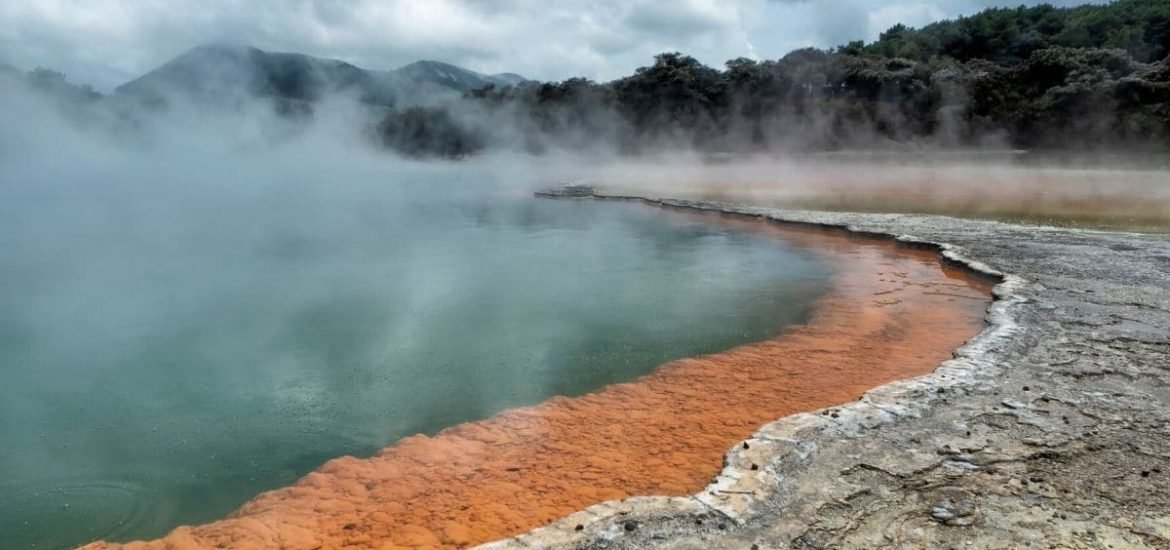
Bacteria adapt to hotter temperatures by increasing their respiration rate and releasing more carbon dioxide (CO2), which could potentially accelerate climate change, according to a new study published on 13 November in Nature Communications (1).
Similar to humans, bacteria use a process called respiration to produce energy, which involves breathing in air and releasing carbon dioxide (CO2). But here’s the catch, bacteria and other single-celled organisms like archaea are highly adaptive. So, as temperatures increase they respond by releasing CO2 at much higher rates in order to make respiration more efficient and ensure survival.
But the authors suggest this could also have negative repercussions for the climate by leading to a so-called positive feedback loop: global warming drives increased CO2 production by bacteria and increased CO2 emissions, in turn, drive further global warming, which triggers even higher rates of CO2 production.
The researchers from Imperial College London wanted to find out just how much these microscopic organisms might contribute to future warming. So, they collected and analysed data from different environments around the world, for example, cold salty lakes and hot thermal pools.
First, they determined changes in respiration rate of the nearly 500 strains of procaryotes (the collective name for bacteria and archaea) due to temperature, then, used a mathematical model to predict how changes in respiration rates affect the CO2 output of prokaryote communities — and as a consequence, climate change.
Higher temperatures increase CO2 production
As expected, CO2 emissions of most prokaryotes are much higher at higher temperatures. More specifically, procaryotes that typically live below 45°C show a strong response to temperature changes, such as increased respiration in both the short term and long term (months to years); whereas, those normally exposed to higher temperature (above 45°C) did not show the same response, and are, therefore, unlikely to be affected by climate change.
But the scientists were also surprised to discover that the rates of CO2 emission are even higher than previously thought. An more worrying, these rates will continue to rise as global temperatures increase.
“In the short term, on a scale of days to hours, individual prokaryotes will increase their metabolism and produce more carbon dioxide” up to a certain limit, said senior author Dr Samraat Pawar of Imperial College. “In the longer term, over years, these prokaryote communities will evolve to be more efficient at higher temperatures, allowing them to further increase their metabolism and their carbon output”. As temperatures rise, this creates what Pawar refers to as “a ‘double whammy’ effect”.
“Prokaryote communities… function more efficiently in both the short and long term, and creating an even larger contribution to global carbon and resulting temperatures.”
Tiny organisms can make a big impact
Since bacteria are so small, this might not seem like a huge problem. But just think about the large quantities of bacteria living, well, pretty much everywhere. In fact, bacteria make up between 20 to 50 per cent of the total biomass on Earth. In other words, they collectively generate a lot of CO2 emissions. Indeed, the authors showed that by including bacteria, the overall CO2 emissions increased from 5–10 per cent.
So, should we just get rid of bacteria then? Certainly, not. Bacteria have been around for a very long time and play an important role in many ecosystems. But they also adapt to environmental changes, like hotter temperatures, much more quickly than other organisms, which means it is difficult to predict the potential global impact on climate change.
Nonetheless, the authors hope these estimates can be included in future climate change models to paint a more accurate picture of future warming.
“Given that these micro-organisms are likely to be significant contributors to total respiration and carbon output in many ecosystems, it’s important for climate models to take into account their higher sensitivity to temperature change at both short and long timescales”, said doctoral student and lead author Thomas Smith in a statement.
(1) Smith, T.P. et al. Community-level respiration of prokaryotic microbes may rise with global warming. DOI: 10.1038/s41467-019-13109-1